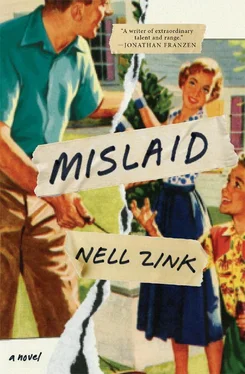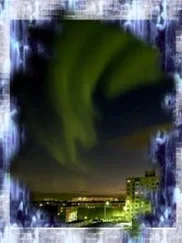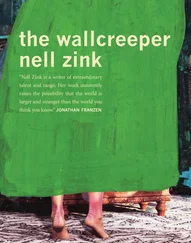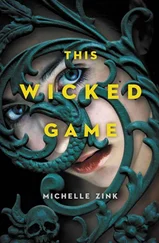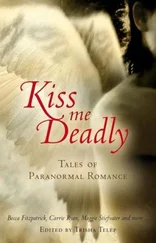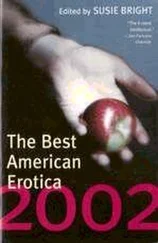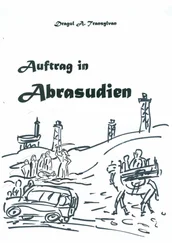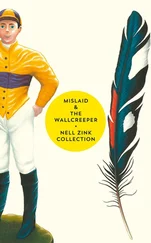Temple volunteered to teach her. It amused Dee to see him in the passenger seat looking perturbed as Karen drew one leg up under her to get a better view of the road. It’s not like you need both feet to drive an automatic. Meg ran out with a pillow and made Karen sit on it. She could see the pillow fly over the bench seat into the back as they drove away.
“I have a little shadow who goes in and out with me, and what can be the use of her is more than I can see,” Dee remarked after Karen backed over a rock, heard the grating sound, and kept going, explaining that once you hit the rock the damage is done and you might as well just go ahead and park the car. Everyone was relieved when Karen finally got her license and gave up driving. The nickname “Shadow” stuck. Even Meg called her Shadow sometimes.
When Karen theorized that Tiffany’s, the famous pancake house in New York City, must be fancy enough to have waiters, Meg took her to Pizza Hut. Karen was so impressed. The romantic lighting, the soft music, the groups of happy people enjoying pizzas together. The helpful service personnel! She had never seen anything like it. Meg cried a little after Karen went to bed.
Karen related her wonderful experience to Temple, and he submitted a request to Dee. She explained that pizza is sugared bread strewn with scraps, and that no waiter would survive serving her a pizza, much less a bill for it. Then Temple recalled that Meg had told him about certain excellent ham biscuits served in a restaurant located at Stratford Hall, birthplace of Robert E. Lee. He informed Dee that if having eaten in a restaurant was a necessary qualification for life beyond the sticks, he would start with those biscuits.
It was Dee’s one authentic encounter with the supernatural. Temple at Stratford Hall became eerily quiet. He ditched the tour group inside of ten minutes, between the basement and the first floor. She found nothing in the tour to offend her; the black reenactment staff was gone, and even the white staff had lost its awe of Robert E. Lee, pointing to the cradle in a corner of the playroom only to say it had been exposed as a fraud. When she finally found Temple among the outbuildings — she had completed the tour and eaten a stale store-bought gingersnap proffered by a well-groomed black college girl — he was dancing with a billy goat. Standing at the fence, he would raise his hands, and the goat would rear, standing upright. When he lowered them, the goat would crash down, lodging splinters in its horns. He did it over and over and over, making the goat charge straight at him, oblivious to his surroundings and everything else, concentrating on his game. When Dee approached him, he stopped and walked toward her as calmly as if he’d been hired by the foundation to hypnotize goats into killing themselves and just gotten off work. Neither of them said a word about Robert E. Lee, who had still been presented, despite superficial updates, as a reluctant participant in the war and the best of men. They drove to the restaurant. It still had the ham biscuits Meg remembered. Temple ate six.
The spring of his junior year, Temple was nominated by the school district to attend Governor’s School for the Gifted. It was a summer program to give Virginia’s gifted students hope by exposing them to college-level work. He almost failed the qualifying test, which had been introduced to keep schools from appointing their best-dressed pupils. Arguably it retained a certain bias. One question was “Boat is to sheet as car is to (a) fuel (b) accelerator,” and it was pretty easy to think the sheet was the sail if you hadn’t grown up reading your father’s copy of Royce’s Sailing Illustrated . Another question asked the gifted to distinguish between golf and bridge foursomes.
Temple was adrift when it came to questions that addressed his environment rather than literature. He had the wrong environment for that. Karen did better on the test, which surprised the school administration briefly and gave them pause. But there was another program they could stick her in, and Temple seemed wasted on it: a three-week enrichment program for minority students at Old Dominion.
Temple knew he was weak in math and science, so he checked on his Governor’s School application that those were his main interests. He ended up being assigned for the monthlong session to Virginia Polytechnic Institute, socially isolated and misunderstood, surrounded by people who had never heard of John Barth, who wanted to major in hydraulics or agriculture, and with a crush on a girl who programmed computers in Fortran and — to his profound fascination — was learning to speak Russian from her father, a diplomat. Temple came back from Blacksburg intent on two things in life: to learn Russian and to become a diplomat.
The ODU program they put Karen in was amorphous by comparison. There was little actual instruction, and no budget for college professors — just a few grad students with experience as teaching assistants. Writing was by far the cheapest form of enrichment. You just send them to their rooms and tell them to keep a journal, and the next day you make them read it aloud. You give assignments like “My Most Embarrassing Moment.”
The writing workshops felled them all with their hilarity. With no required reading, the children were free to reinvent the wheel and wrote stirring narratives of first sexual encounters and regrettable drug binges. The TAs were awed by their talent and daring, unaware that working-class writing — from biker porn to True Confessions —is sparse, economical, and lurid in a way that can only remind grad students of Carver and Bukowski.
Karen couldn’t help thinking she had gotten the short end of the stick, especially when she got letters from Temple that started with “Dear Karen” spelled out in Cyrillic. But she had fun reducing the group to hysterics with her tall tales, and she did meet a girl who made her feel almost normal. Angela Mendez was far whiter than Karen, if you score whiteness on a scale from black to pink. Karen in summer was platinum blond with skin like lightly toasted marshmallow. Angela was white as a cotton ball. An hour at the pool gave her a sunburn you could peel off in sheets. “What minority are you?” Karen asked at their first tête-à-tête.
“Hispanic,” Angela said. “We’ve never done the genealogy, but you can tell by my name.”
Meg took advantage of Karen’s absence to start another play. It was about the commander of a death squad in El Salvador who falls in love with a nun he’s supposed to massacre. In the early drafts, they were a man and a woman. They were always in bed by act 1, scene 2, because they didn’t have much to say to each other.
She decided to draft them as lesbians to make them more communicative. Afterward she could go back and change the death squad commander character to be male. But it didn’t work. The openhearted death squad commander refused to seem male to her.
She rewrote him as a man. Pouty and sarcastic. Instantly the nun became a solicitous bore. He ignored her. And there they were again, back in bed.
She tried again, establishing the female character first, in scenes with other nuns. Now the death squad commander seemed superfluous. She made him win her heart away from the nice nuns by being even nicer, but they were both so unsexy as affectionate chatterboxes, the love story just fell apart. They had to ignore each other to get anything done.
She tried one last time. She rewrote him as a complete jerk. Instead of falling in love with anybody, the commander said he would kill his own death squad to have sex with the nun. Afterward the nun went to bed with him to reward him. It was kind of sexy.
Meg saw a distinct pattern to it: patriarchy.
She had wanted to write about idealized partners. But the impressive men she had known weren’t anybody’s partner. They were lone wolves and dictatorial heads of families. The idea of partnering with a powerful man — well, it sounds nice enough, but even on paper it won’t fly. A novel ends with a wedding for a reason. Partnership is antidramatic. Partners are not adversaries. Partners don’t fuck. Yet she dreamed of loving a lesbian partner. Was she stupid?
Читать дальше
Конец ознакомительного отрывка
Купить книгу
